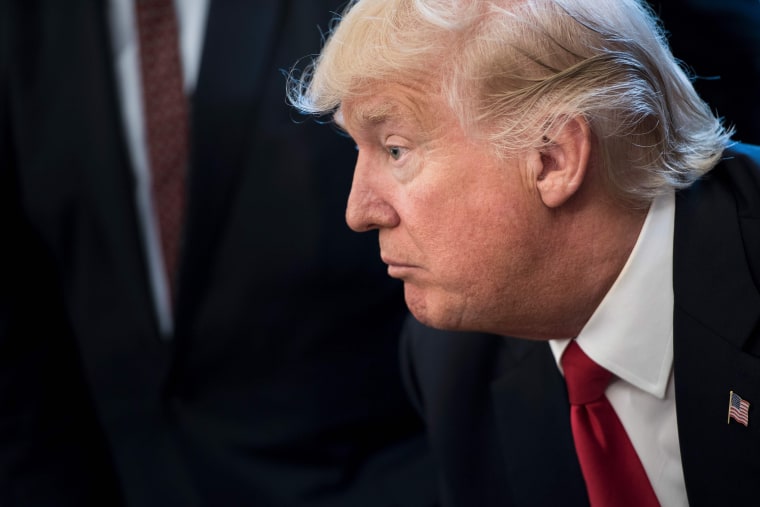Donald Trump has long boasted that he has a unique skill that others lack. "Deals are my art form," the Republican bragged. "Other people paint beautifully or write poetry. I like making deals, preferably big deals. That's how I get my kicks."
As we've discussed before, the evidence to back up these boasts has always been elusive -- no one has ever been able to prove that Trump actually excels in negotiations or deal-making -- but he kept talking about his expertise as a guy who knew, perhaps better than anyone in the world, how to seal a deal. Trump's books were ghost-written, but he's ostensibly the author of The Art of the Deal.
And yet, nine months into his presidency, Trump hasn't negotiated any meaningful deals with anyone. The Washington Post had a good piece yesterday highlighting one of the hindrances to the president's goals as a negotiator.
President Trump campaigned as one of the world's greatest dealmakers, but after nine months of struggling to broker agreements, lawmakers in both parties increasingly consider him an untrustworthy, chronically inconsistent and easily distracted negotiator.As Trump prepares to visit Capitol Hill on Tuesday to unify his party ahead of a high-stakes season of votes on tax cuts and budget measures, some Republicans are openly questioning his negotiating abilities and devising strategies to keep him from changing his mind.
It's a compelling thesis, to be sure. Trump seems wholly incapable of remaining focused on his own priorities; he frequently lies about his intentions, even to allies; and frequently changes his mind without reason or explanation, often based on the last person to have his ear. How do policymakers reach important agreements with someone like this? The short answer is, they don't.
But there's one part of this that the Washington Post piece hinted at, but was unwilling to say explicitly.
In order for Trump to play a constructive role in making deals with elected officials, he has to have some basic familiarity with the substance of the issues at hand -- and in nearly every instance, this president has no idea what he's talking about.
The health care fight offered a classic example. As we talked about in July, Trump had a high-profile opportunity to prove how adept he was as a world-class negotiator and deal-maker, but the Republican flunked the test spectacularly -- in large part because the president didn't understand the issue, didn't care to do his homework, and showed no interest in policy or substantive details.
In Trump's mind, to lead on the issue meant barking vague orders to a separate branch of government, and then sitting back, waiting for a bill he wouldn't read or understand to arrive in the Oval Office. Rolling up his sleeves, opening some briefing books, and trying to do real, substantive work apparently never occurred to him.
And while the health care fight is largely behind him, the problem persists. Vox had an amazing report yesterday on Trump's interview with Fox Business Network's Maria Bartiromo, documenting the degree to which the president struggled to express a coherent thought on any subject.
The questions couldn't have been easier or more explicitly designed to make the president look good, but it ultimately didn't matter. Trump was hopelessly clueless in response to every inquiry.
How does someone negotiate complex policy agreements when he doesn't know anything about the subjects at hand?
